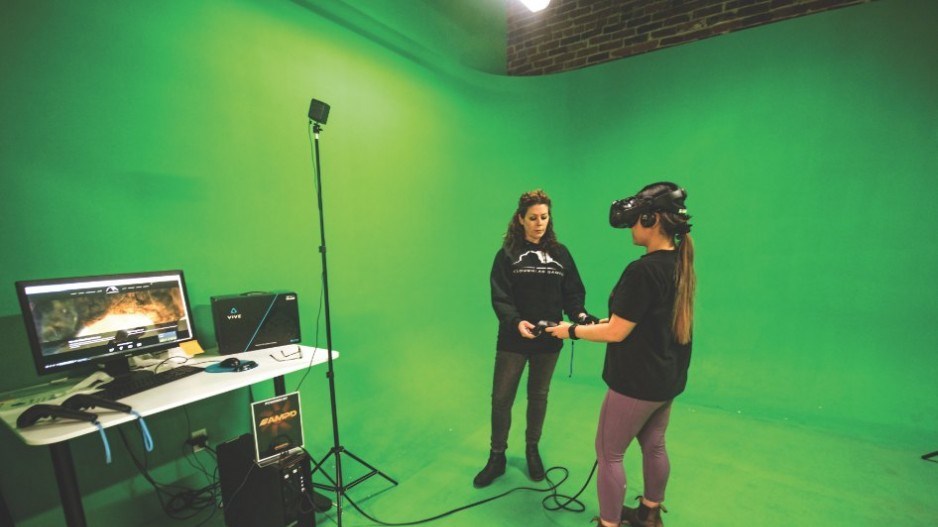What happened: VR/AR hub in Vancouver set to close next month over funding issues
Why it matters: Large and small tech firms were using The Cube to boost local VR sector
The BC Tech Association says it will be forced to close its popular hub for the local VR and augmented reality sector over funding issues with government.
The industry group plans to shutter the 6,000-square-foot facility known as the Cube on May 17.
“Despite this loss, BC Tech will not stop fighting for B.C.’s tech ecosystem and we won’t stop asking governments to match their words of support with action and investment,” BC Tech Association CEO Jill Tipping said in an April 17 statement.
The facility in Vancouver’s Railtown neighbourhood opened its doors in October 2017, offering the local VR sector gear, business workshops, technical training programs and industry events.
Partners included Microsoft Corp. (Nasdaq:MSFT), Finger Food Studios and Archiact.
The Cube drew most of its funding from the B.C. Tech Association.
The industry group had in turn been accessing federal funding for the Cube from the federal government’s Canadian Accelerator and Incubator Program (CAIP).
The B.C. Tech Association had received $10.4 million in CAIP funding over five years from Ottawa in November 2014.
But that CAIP funding program ended on March 31 of this year and the B.C. Tech Association was unable to land additional funding to compensate.
While Tipping applauded Ottawa’s April 16 promise of $52.4 million towards three analogous organizations in Ontario through the new Scale-Up Platform, she took aim at the province.
“The tech sector in B.C. has the same potential, growth and ambition as Ontario. But there is one key difference: the absence of the province at the funding table,” she said.
“Despite months of promising dialogue and negotiations, in recent weeks progress stalled. So [April 16], instead of announcing a transformative investment to deliver a scale-up platform for B.C., a lack of confirmed funding forced BC Tech to announce the closure of its Cube facility.”
She said the first “essential step forward” is for the provincial government to commit to funding.
“Without that we will remain at this unacceptable stalemate with B.C. losing out on millions of dollars,” she said.
Meanwhile, Victoria had provided $500,000 in one-time funding to the BC Tech Association after the CAIP funding ended, according to B.C. Jobs, Trade and Technology Minister Bruce Ralston.
“This bridge funding was put in place to sustain programming at the BC Tech Hub and The Cube while the BC Tech Association worked to secure alternate funding models,” the minister said in a statement to Business in Vancouver.
“We continue to support B.C.’s tech sector through a variety of programs and investments, including $42 million per year to fund 2,900 new tech seats at B.C. post-secondary institutions, extending the Interactive Digital Media Tax Credit by five years to 2023 and providing funding through the $100 million BC Tech Fund.”
The federal Ministry of Innovation, Science and Economic Development did not respond to Business in Vancouver before deadline.




